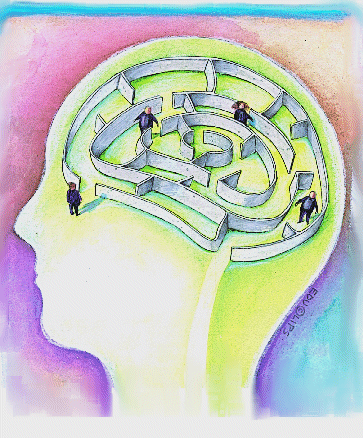
Most people find it difficult to keep their concentration level up at the best of times. Think about how many times maybe you�ve started day-dreaming in a difficult exam or let your mind wander when the pressure is on at work. Formula One drivers can�t afford the luxury of �spacing out�, especially when the lights go out to signal the start of the race. That�s when they really earn their money, and they can�t afford to let a single opportunity slip through their fingers.
Even when the driver sits on the grid, with the fans cheering him on, television crews wanting to interview him, and pretty grid girls holding up his race car number, he rarely thinks about anything other than the Grand Prix itself. In his head, he�s thinking about how to get his start right; where the best place to overtake is if he gets the jump on the cars ahead when the lights go out; and what to do if his car is slow away.
Once the race is underway, the driver thinks constantly about how fast he needs to drive, where the best places to overtake are, whether he needs to look after his tyres or be more economical with his fuel so that he�s better placed at the end of the Grand Prix. It�s no wonder that at the Monaco Grand Prix, with more than 2,000 gear changes during the race and the entire track lined by barriers, drivers are absolutely shattered at the end. They certainly deserve a drink of champagne if they win!
Keeping concentration levels up isn�t easy to do; that�s why drivers often sit in a quiet room before the race starts so that they can get in the mood. Beyond their own preparation and determination, the teams help their drivers as much as they can, through the radio systems that they used so effectively in practice. The best teams constantly tell their drivers about the positions of other cars, just how fast they need to drive, and when they�re scheduled to stop for fuel and new tires. The teams also use pit boards (special boards with numbers on counting down the laps to go, the time difference between cars in front and behind, and instructions like to slow down or come into the pits) to advise the drivers, although these aren�t always foolproof. Sometimes drivers have misread their pit boards and come into the pits too early or run out of fuel because they didn�t think they needed to stop.
It�s very important that drivers never lose their concentration, even for a split second. One of the most famous occasions when a driver slipped up was in the 1988 Monaco Grand Prix. Ayrton Senna was leading the race by a huge margin with only a few laps to go. His arch rival for the championship, Alain Prost, had just got up to second place in the race. Senna was so worried, despite his massive lead, that he lost concentration and clipped the barriers �crashing out of the race. Senna was so upset, he didn�t return to the pits. Instead, he locked himself away in his nearby apartment until the next day!

















No comments:
Post a Comment